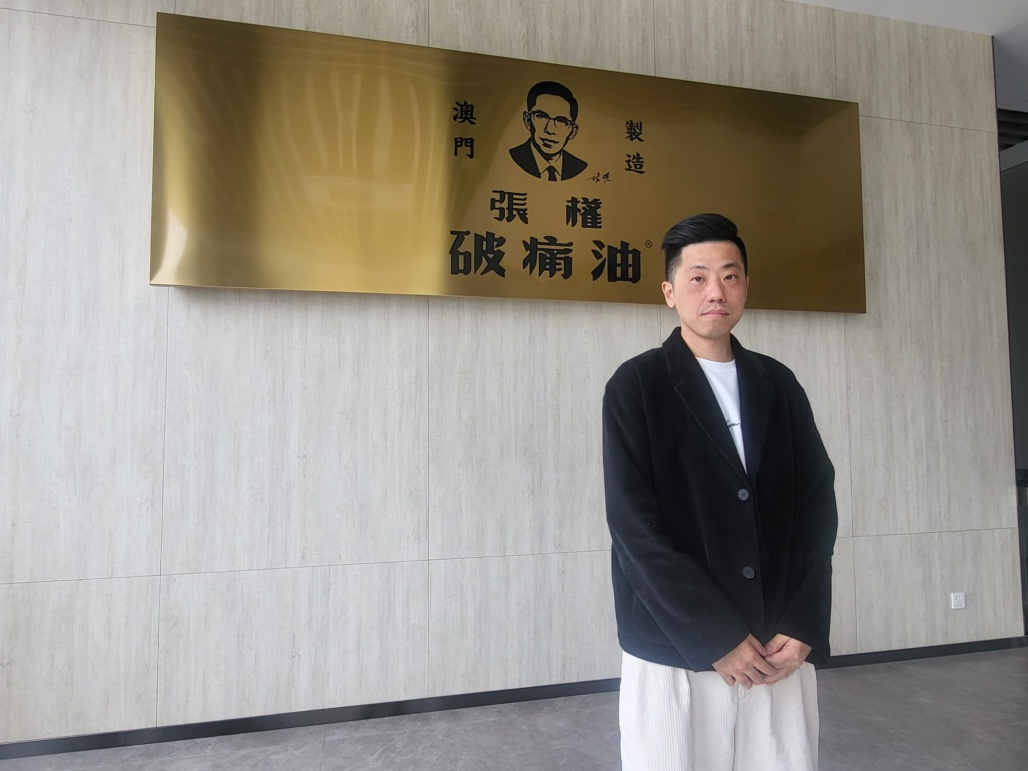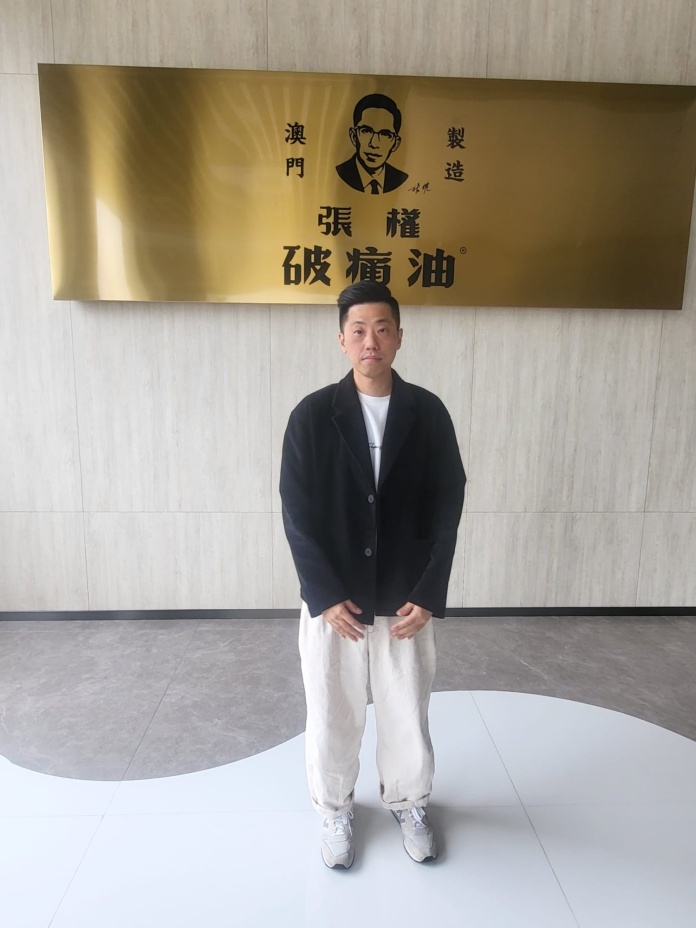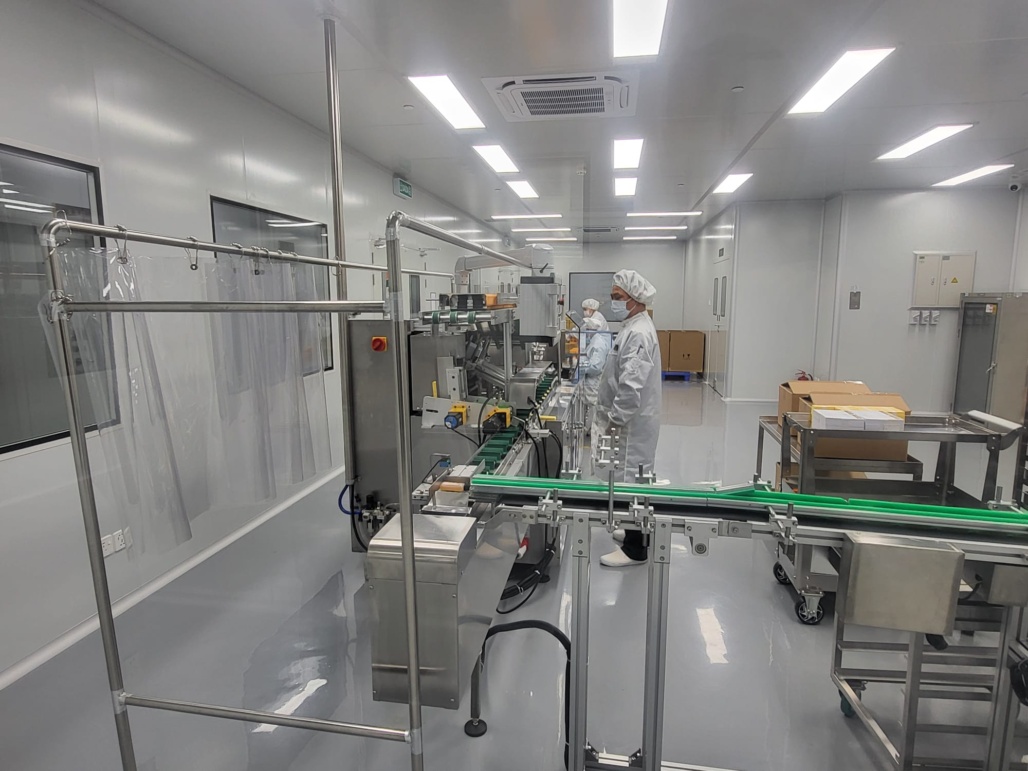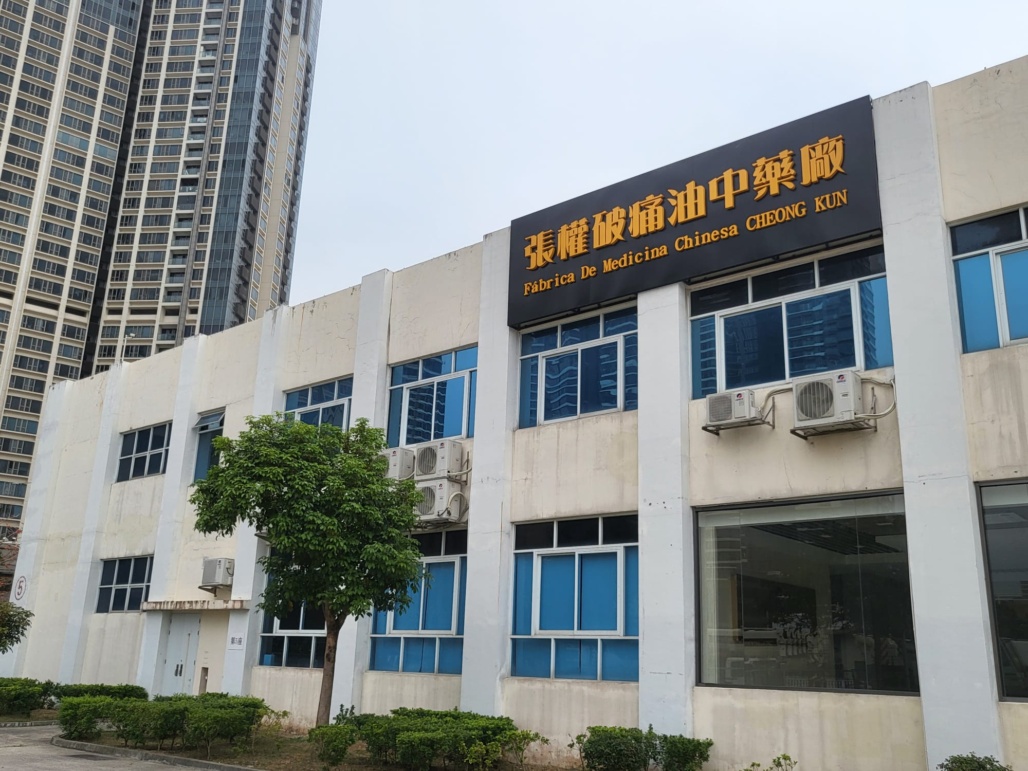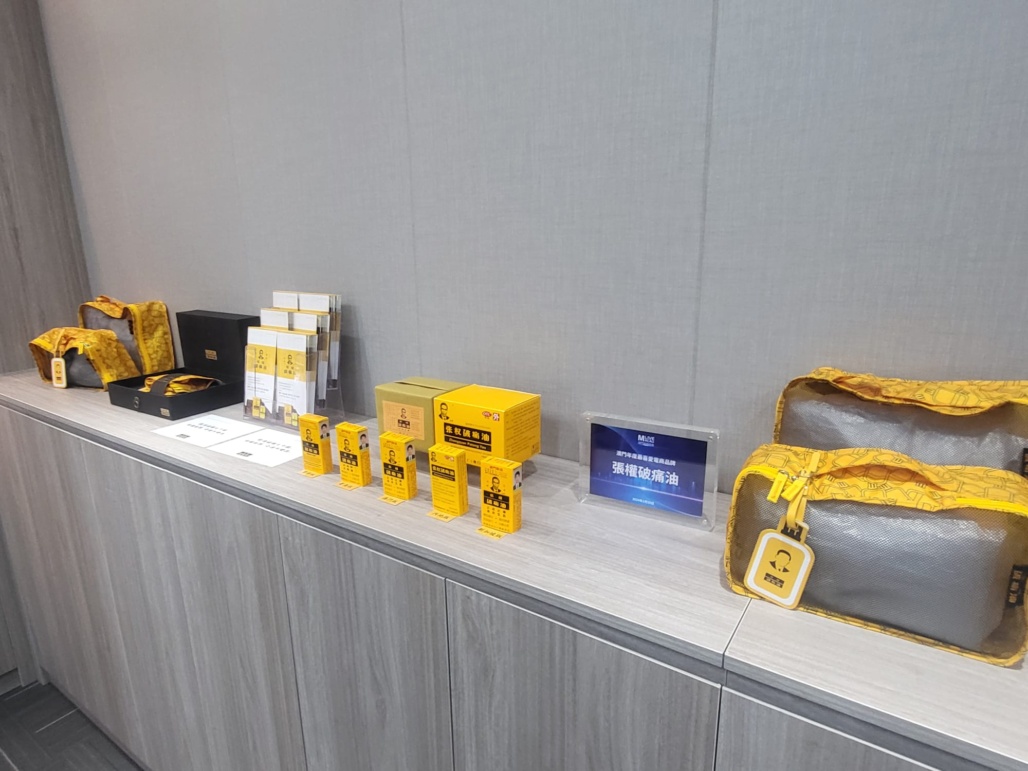Cheong Kun Pain Reliever Oil goes international with roots firmly planted in Macau.
The legacy of Cheong Kun Pain Reliever Oil, a historic traditional Chinese medicine brand from Macau, continues to thrive under the management of the Cheong family’s third generation. With a new 2,000-square-metre factory in the Seac Pai Van Industrial Park, the company has ambitious expansion plans, aiming to reach production of 10 million bottles in three years and explore Portuguese-speaking markets.
By Nelson Moura
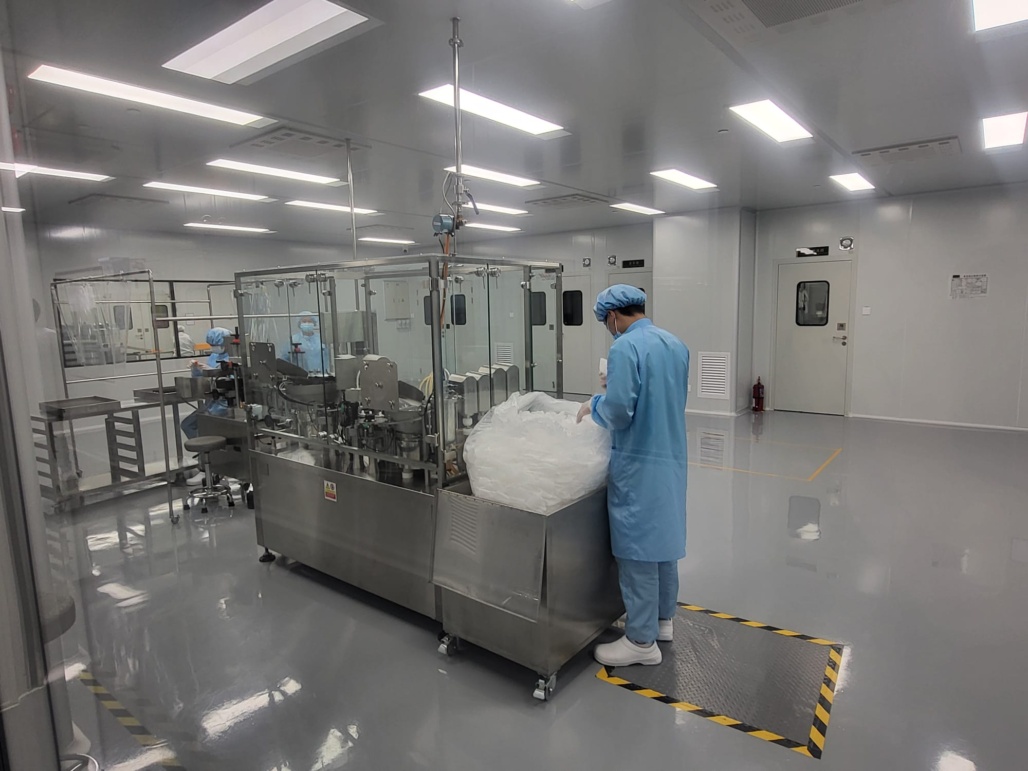
It was already in the 1950s that Cheong Kun He established a clinic on Rua dos Vendilhões where he would produce and sell his Cheong Kun Analgesic Oil.
The founder’s grandson, now the company’s technical director, Cheong Lok Kei tells Macau Business how his grandfather was inspired by his experience as a sailor to come up with this remedy.
“Sailors were regularly injured during navigation, and with limited first aid resources on the ship, injured workers could only let wounds heal on their own and endure the pain. My grandfather decided that there should be a portable medicine that could be taken for navigation,” Cheong explains.
“When they went out to sea they would get injuries and wounds that could easily bleed and also become infected by bacteria. After years of experience, he refined his recipe and in the 1960s licensed Cheung Kun Oil,” the director points out in an interview at the brand’s new factory in Seac Pai Van.
The recommended use for the oil has remained the same: pain relief and treatment of wounds, including burns, haemorrhages, or rheumatisms.
However, according to the director of the company – officially Cheong Kun Pain Reliever Oil Chinese Medicine Factory (Macau) Ltd. – the brand is now promoting a larger use for sports injuries and children.
“When applied to the wound, the oil anaesthetizes and stops bleeding quickly. That’s why mothers feel safe applying the oil to their children. This is how Chinese medicine can be passed on to the next generation,” Cheng tells Macau Business.
As for the process of selecting Chinese herbs, the company followed Cheng Kun’s original recipe, with the entire process, from extraction to bottling, carried out in Macau, following industrial quality standards. “In the past, my grandfather produced the oil in his clinic. He made it in the kitchen and then sold it in the shop in the same building. He made his packaging,” the manager recounts.
“When applied to the wound, the oil anaesthetizes and stops bleeding quickly. That’s why mothers feel safe applying the oil to their children. This is how Chinese medicine can be passed on to the next generation” – Cheong Lok Kei
Growing in scale
After his grandfather passed away in 1998, Cheong’s father bought a factory in the Tamagnini Barbosa north district neighbourhood in 1999.
“At that time, sector regulations changed, and Chinese medicine had to be produced in factories and meet certain requirements. Some traditional Macau brands did not make the change and only sold in their clinic or shop,” he says. Only with these improvements did it become possible to gain greater confidence from an international audience, with Cheong highlighting that the most difficult thing for the industry is for people to think that it has no scientific support. After studying management and Chinese medicine in the United States and Hong Kong, Cheong decided to apply his knowledge to not only continue the family legacy but also to reach another level.
The move to the Seac Pai Van Industrial Park marks a step towards this goal, allowing for a significant expansion of production capacity and production standards while maintaining the brand’s Macau roots.
The new factory got its licence early on, around March of last year, and after three months of testing, it opened in June. With the factory following international Good Manufacturing Practice standards, it can now sell all over the world.
“When the oil reaches the standards we want, we place it in a tank, and the entire batch is transferred to the filling and packaging process. We will send samples for safety testing and distribute them ourselves. The entire process is 100 percent done in Macau,” Cheng adds.
Previously, production was limited to less than 1 million bottles per year, but now the company aims to produce up to 1.5 million bottles in 2024, with ambitious plans to triple this capacity by 2027.
“But we will study the market demand. We sell about a third in Macau in 400 pharmacies, a third in Hong Kong, and a third in China, mainly in Guangdong. We recently sold our first batch to Singapore, a market where we see a lot of potential,” he describes.
Despite the incentives provided for TCM companies to establish themselves in Hengqin, the choice for the new factory fell on RAEM, with Cheong justifying the decision with the family’s strong emotional bond with the region and the desire to become an international brand that maintains its local roots. “We are a local brand from Macau, created by residents of Macau, but we believe that we can become an international brand. We hope to be a ‘unicorn,'” he describes.
Their efforts also brought some public recognition, with Cheong Kun awarded the Medal of Merit for Industry and Commerce last year from the Macau SAR government.
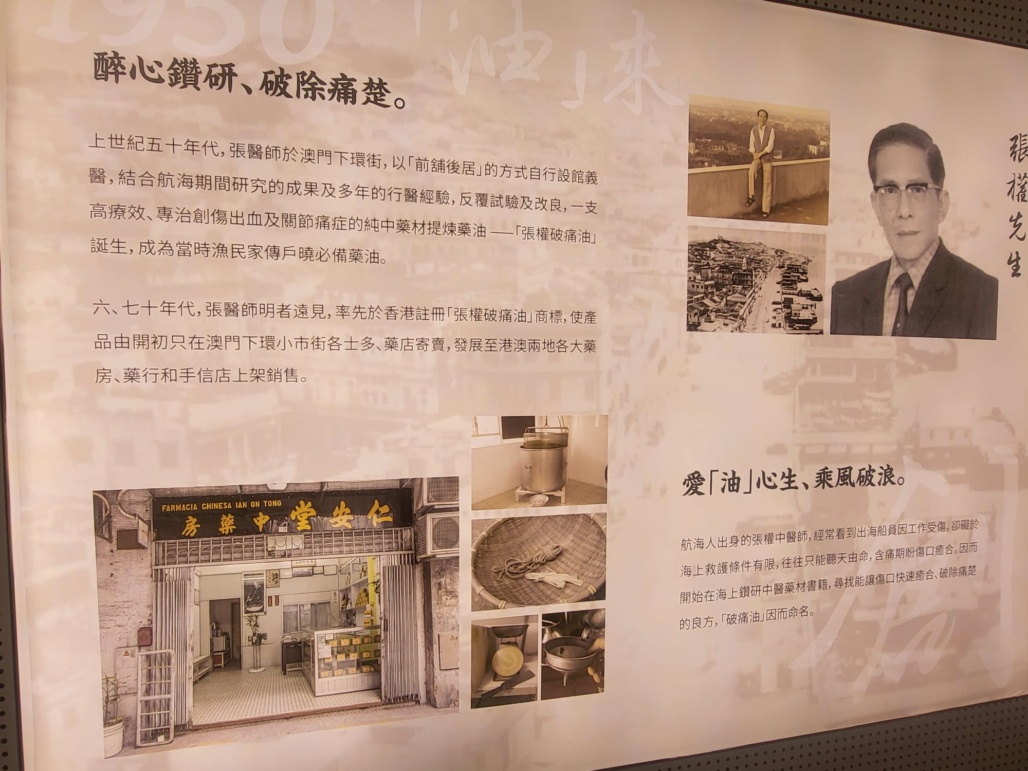
Reaching Mozambique and beyond
However, it was with the support of the Traditional Chinese Medicine Science and Industrial Park in Hengqin that the company started selling to Mozambique in 2017.
At the time, Cheung Kund and Chinese COVID-19 medication, Liangwen Qingwen were the first two TCM products to undergo a translation and registration process for sale to Lusophone countries.
”The Park went to Mozambique to understand the government requirements and the herb registration process. We consider Mozambique as a gateway to Lusophone countries, and as a Macau brand, we have advantages in this connection. In two or three years, we want to reach another country, perhaps Brazil or Portugal,” he describes.
In the Portuguese-speaking African country, the oil is distributed to local pharmacies and also to schools or TCM clinics, where doctors use it.
“These therapists teach acupuncture and also massage skills and how to apply Chinese medicine to different symptoms. This is more practical because people who use it end up buying it. I think this is the easiest way for people to better understand Chinese medicine,” Cheong highlights.
With a new store on Rua dos Ervanários and a diverse line of merchandising products, the company now seeks not only to attract tourists but also to educate local customers about the benefits of the oil and its history.
“We target two types of customers. One is not familiar with the brand and to whom we have to explain its history and uses. The others are repeat customers, who may have only partial knowledge of the oil and how to use it. But by entering the store, they can better understand how to use it to treat the elderly, children, and in different scenarios,” he describes. “This is how Chinese medicine can pass on to the next generation.”
